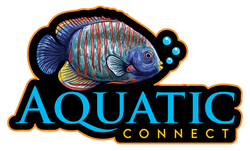Diet: Omnivorous
Natural Range: Eastern and Northern Australia, New Guinea, and surrounding islands.
Habitat(s): Forests, woodlands, and rainforests
Temps: 70-90°F
Humidity: 50-60%
Size: 12-13 inches including tail
Lifespan: 10-15 years in captivity
General Info:
Sugar gliders are small, nocturnal marsupials native to parts of Australia, New Guinea, and Indonesia. They get their name from their sweet-toothed diet and the flap of skin or "gliding membrane" which they use to glide between trees. As pets, they are known for their playfulness, agility, and the unique bond they form with their owners.
Housing:
Sugar gliders are social animals and thrive best when kept in pairs or small groups. A single glider can get lonely and depressed. Their enclosure should be spacious with dimensions at least 24x24x36 inches for a pair, but bigger is always better. The cage should be made of a non-toxic material with horizontal bars (for climbing). It should be outfitted with toys, branches, hammocks, and nest boxes. The floor should have a substrate like recycled paper, to absorb waste. Make sure the gaps between the bars are small enough to prevent escapes.
Heating & Lighting:
Maintain a temperature between 70-90°F in the sugar glider's environment. This can be achieved with ceramic heat emitters or under-cage heating pads. They should not be exposed to direct sunlight or placed near drafts. Being nocturnal, they don't require UVB lighting, but a regular day-night cycle with ambient room light is beneficial.
Feeding:
Sugar gliders have an omnivorous diet. In the wild, they feed on sap, nectar, fruit, insects, and even small vertebrates. In captivity, a balanced diet should include:
1. A sugar glider-specific pellet as a base diet.
2. Fresh fruits and vegetables (avoid citrus fruits).
3. Protein sources like boiled eggs, lean cooked meats, or feeder insects (like mealworms and crickets).
4. Occasional treats can be offered, such as yogurt drops or honey.
Fresh water should always be available.
General Health:
Regular check-ups with a vet experienced in exotic animals are crucial. Some common health issues in sugar gliders include nutritional imbalances, parasites, and injuries from fights or accidents. Monitor their weight, behavior, and food/water intake. Any sudden changes or signs of illness (like lethargy, lack of appetite, or difficulty breathing) should be addressed immediately.
Summary:
Sugar gliders are charming and affectionate pets, but they require a dedicated owner willing to provide proper care, attention, and a suitable environment. Their dietary needs are diverse, and they thrive best with a buddy. Regular health check-ups, a spacious cage, and social interaction are paramount for their well-being. With the right care, these delightful creatures can bring joy and companionship for over a decade. Before getting one, ensure you're ready for the commitment and always source from ethical breeders or adopt from a reputable rescue.


